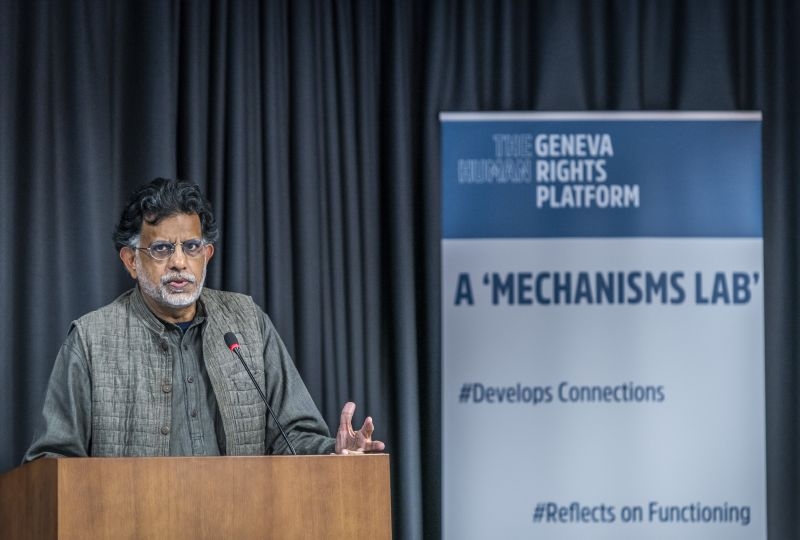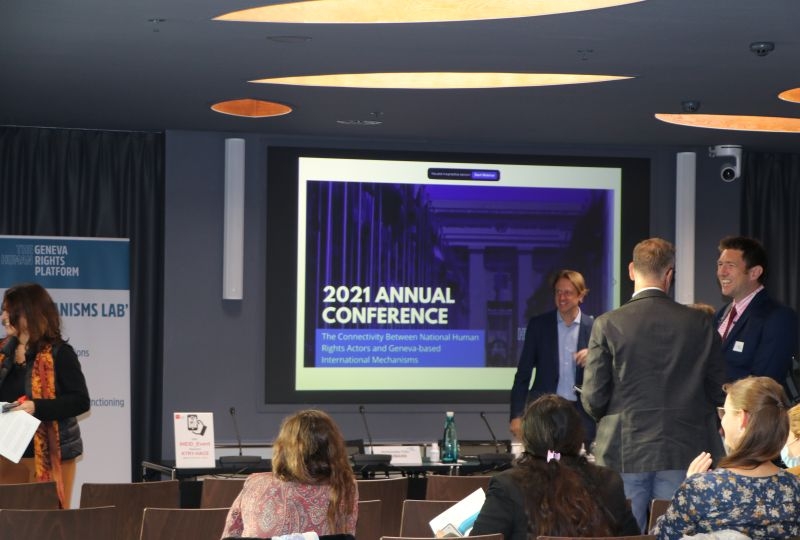21 October 2021
Closing the trilogy of Geneva Human Rights Platform (GHRP) Annual Conferences dedicated to the connectivity between United Nations (UN), regional and national human rights mechanisms and actors, the 2021 edition addressed the crucial links between national human rights actors and Geneva-based international mechanisms.
With over 500 registered participants in Geneva and online and 24 partners – including the UN Office of the High Commissioner for Human Rights, UN-Habitat, the EU Fundamental Rights Agency, renowned academic institutions, major international NGOs and fellow Geneva-based platforms – the conference’s sessions focused on the capacity of domestic actors to mutually engage with each other and liaise with Geneva-based international human rights bodies in the context of implementation, monitoring and follow-up to UN human rights recommendations.
‘The conference was exceptional in the diversity of panelists, the choice of thematic issues, the content of the discussions and the impressive spread of organizations co-hosting the event. We can now see the growth of the GHRP as an essential network in Geneva that brings together a range of voices across NGOs and independent institutions at a time when collective work is essential to continue to promote human rights, the relevance of UN mechanisms and the inevitable task of connecting international and national work on human rights’ says Miloon Kothari, Independent Expert on Human Rights and Social Policy and member of the GHRP Advisory Board.











